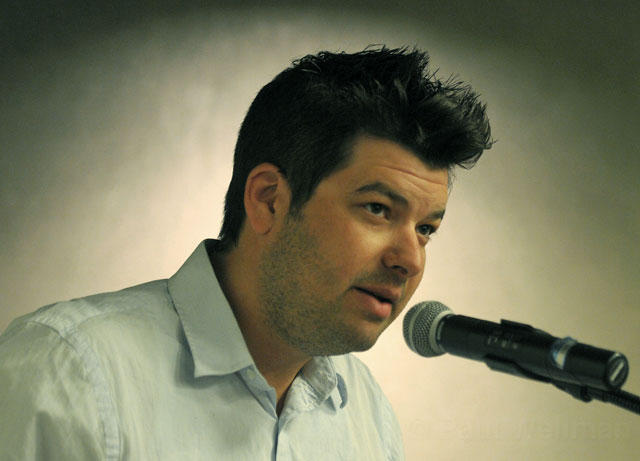The Homeless Living Room
MTD Denies New Noise's Request to Sublease for Drug- and Alcohol-Free Music Venue

New Noise Music Foundation’s plan to bring back The Living Room, a drug- and alcohol-free music venue, hit a wall when the Metropolitan Transit District (MTD) unanimously rejected the foundation’s request to sublease one of its properties at 5353 Overpass Road in Goleta. On Tuesday, Jeff Theimer, New Noise’s executive director, presented the plan — to convert the space to a teen-friendly music hot spot — to MTD’s board of directors. MarBorg Industries, which currently rents the location, had offered to let New Noise use the building for free.
“We’re extremely disappointed with the decision,” Theimer said afterward. “We’ve been working on this presentation for two months, looking for a location for two years. It was shot down in a matter of minutes. It would’ve been nice to have had some more conversation.” Chairperson Dave Davis and Brian Fahnestock recused themselves from the meeting due to conflicts of interest.
General Manager Sherrie Fisher was the first to speak during the public meeting. Though she was impressed by the proposal, she recommended against it. “It would be difficult for MTD, liability-wise,” she said. “At some point MTD will want that property back to sell or use as a bus yard. It will be hard to take it back.”
Olivia Rodriguez, the board’s secretary, concurred, saying she was familiar with the location. “This is not the right facility,” Rodriguez said. “It’s dangerous and dirty.” Chuck McQuary brought up other concerns. “Believe me, accessibility issues are huge. There’s virtually no lighting, no crosswalks, no stop signs,” McQuary said, pointing out that the space is in an industrial area. Vice Chair Roger Aceves spoke last, congratulating New Noise on trying to bring The Living Room back. “But I would encourage you to find someplace else,” he said. Despite the major setback, Theimer remained optimistic. “The Living Room will be the biggest thing to happen to music in Santa Barbara since it went away nine years ago,” he said. “We’ve got a lot of community support. The fight will continue.”



